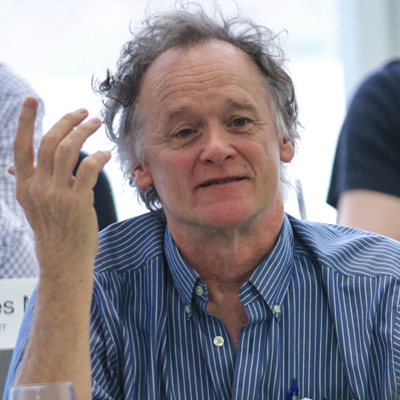News David S. Battisti speaks on climate's influence on crop production
May 22, 2018

On May 10th, 2018, J-WAFS and the MIT Department of Earth, Atmospheric and Planetary Sciences brought David S. Battisti, Tamaki Endowed Chair of Atmospheric Sciences at the University of Washington, to talk with members of the MIT community about the potential impacts of climate change on future crop production. 40 MIT students, faculty, and staff gathered for this co-sponsored event, where Prof. Battisti offered a novel approach to using models to assess climates impacts on future global crop yields.
By the end of the century, it is likely that average seasonal temperatures in the tropics and subtropics will exceed the highest temperatures ever recorded. But how will these rising temperatures affect agriculture? In this lecture, Prof. Battisti presented new research using climate and crop models to make projections for yield and variability. He focused on how temperature alone could have an impact, and how - despite other possible future changes in precipitation, CO2 levels, and other environmental factors that have an effect on future plant growth - global and regional crop yield is projected to decrease. He provided snapshots of several possible climate and crop futures and discussed projected effects, among them: global drops in average yields of major cereal grains that are currently grown, increases in extreme variability from year to year, increases in the likelihood of major producers being hit with bad production year(s), and expected volatility in international markets as a result of this variability. He also presented research by others on the impacts of temperature increases on insect populations, which could be a future source of additional crop loss.
Prof. Battisti concluded with a discussion of ways that future temperature increases could be kept to a minimum which would help future crop production and global food security. Aggressive mitigation of greenhouse gases, aggressive transformation to renewables, a switch to heat tolerant staple crops, and a drastic reduction in red meat consumption to reduce greenhouse gas use and preserve staple crops for human consumption, were among the several options that he presented.